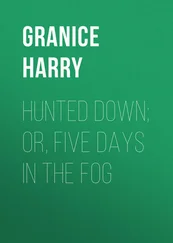Günther Bach - Arrows In The Fog
Здесь есть возможность читать онлайн «Günther Bach - Arrows In The Fog» — ознакомительный отрывок электронной книги совершенно бесплатно, а после прочтения отрывка купить полную версию. В некоторых случаях можно слушать аудио, скачать через торрент в формате fb2 и присутствует краткое содержание. Жанр: unrecognised, на английском языке. Описание произведения, (предисловие) а так же отзывы посетителей доступны на портале библиотеки ЛибКат.
- Название:Arrows In The Fog
- Автор:
- Жанр:
- Год:неизвестен
- ISBN:нет данных
- Рейтинг книги:5 / 5. Голосов: 1
-
Избранное:Добавить в избранное
- Отзывы:
-
Ваша оценка:
- 100
- 1
- 2
- 3
- 4
- 5
Arrows In The Fog: краткое содержание, описание и аннотация
Предлагаем к чтению аннотацию, описание, краткое содержание или предисловие (зависит от того, что написал сам автор книги «Arrows In The Fog»). Если вы не нашли необходимую информацию о книге — напишите в комментариях, мы постараемся отыскать её.
something that you merely know is there?
Rolf thinks that he hears Erhard’s voice saying:
“You must learn to see the invisible clearly!”
In this sequel of the archery novel «The horn of the hare» the story about the two friends continues.
15 years later: Germany is no longer divided and everything has changed, also Bärgers life and his shooting with the bow and arrow.
Arrows In The Fog — читать онлайн ознакомительный отрывок
Ниже представлен текст книги, разбитый по страницам. Система сохранения места последней прочитанной страницы, позволяет с удобством читать онлайн бесплатно книгу «Arrows In The Fog», без необходимости каждый раз заново искать на чём Вы остановились. Поставьте закладку, и сможете в любой момент перейти на страницу, на которой закончили чтение.
Интервал:
Закладка:
The young man with the black boots grinned at him, raised an open beer can and shook it so that foam spurted out.
“Chinaman,” he said, “Chinaman like to dlink beel!’ and then with a quick movement, he poured beer all over the book which still lay open on Bärger’s lap.
In the loud laughter that broke out, he heard the giggling of two girls. Then everything happened very fast. Furious, he tried to jump up to protect his book and he was hit. He was hit from behind, above his right ear and, because he was hit with a full beer bottle, the fun was quickly over for the bunch of young thugs. He sagged back onto the bench, and then slid to the floor of the car, where he lay motionless. As the tram then rolled shrieking around a curve, he rolled with his head beneath the bench and blood from the wound began to flow over his ear and down his neck.
Then they were at the next stop. There was no one on the street as the sobered bunch leaped off the tram and raced across the street, scattering in different directions.
5
It wasn’t until the next stop that passengers climbing into the car discovered Bärger, unconscious and lying in a pool of blood and beer from the discarded beer can. Disgusted by the sight, an elderly lady informed the driver that there was a drunk lying in one of the cars who must have passed out, fallen, and injured himself.
Two men carried him out and laid him on the bench at the tram stop where he slowly regained consciousness. The wound on the side of his head was still bleeding slowly.
An ambulance happened to be passing and was stopped by the tram driver to pick him up. Bärger’s damp clothes were sticking to his body, and he began to freeze. A drum began beating in his head and he felt that he was going to be sick.
“What happened?” asked a voice in his ear. Gentle hands wound a bandage around his head.
“That’s what I wanted to ask you,” said Bärger.
“He’s not drunk,” said a woman’s voice. The hand was now wiping the blood from his ear. It hurt and Bärger started.
“I’m cold,” he said after a bit, while the ambulance raced through the night.
“At the moment, that’s the least of your worries,” said a man’s voice. The ambulance raced through a crossing with siren going and lights flashing.
“Where are we going?” asked Bärger.
“To the emergency room at the casualty hospital,” answered the woman’s voice.
“Oh, hell,” he said despairingly.
“What’s wrong?” asked the doctor.
“Tomorrow, I’m flying to Japan,” Bärger said tonelessly.
The doctor laughed. “I wouldn’t be so sure about that,” he said.
“I think that I have to throw up,” said Bärger. And he did.
He was still nauseous when they finally put him in a clean hospital bed, almost flat on his back with his hands clutching the sides of the mattress to fight against an increasing sense of vertigo.
On his arrival, a tired ER doctor diagnosed his problem as a brain concussion with all the typical symptoms and, showing little further concern, went back to bed. Before he did, however, he had Bärger taken for an x-ray, and in spite of his protests he was rolled across a dark courtyard on a gurney with wheels that were too small. The narrow cart bumped across the uneven surface and he tried to keep his head up to avoid the jarring which caused the pain to pulse in his head. His wound seemed to be trivial in the eyes of the hospital personnel. It still hurt a little after stitches had been placed in the crescentshaped wound. Instead of the bandage, he now had a light pad that was stuck with wide tape unto the shaven half of his head.
He gradually became aware of all this after a hurrying Sister awakened him the next morning. Bärger had trouble remembering; he had a raging headache; he was nauseous; and he had no idea how long he would stay that way.
For several hours, all that Bärger threw up into the gray plastic basin was only a greenish slime. Unwillingly he drank some insipid herbal tea, only to give it back by return mail, as he put it.
He was doing that at the moment when a Mr. Bärger from Berlin was being paged for the last time at the Brussels airport to present himself at Gate 14 for the flight to Narita/Tokyo. At the same moment a small Japanese rolled up his banner with the legend “Noyama-Travel” and rapidly left the departure lounge.
He didn’t feel better until the next day.
His headache gradually faded, and the attacks of nausea occurred less frequently. Bärger wanted to go home, but the doctor wanted to keep him under observation for another couple of days. So, swearing, he went to the reception area and called Lothar.
His friend’s first question was to ask where he was calling from. He took a deep breath and then, as briefly as possible, told him what had happened.
There was a short silence at the other end of the line, then Lothar said, “It won’t make you feel any better, but you can be glad that it wasn’t any worse.”
Bärger hadn’t thought of it like that, and he said, “It will be a while before I can agree with you. At the moment I have other things on my mind.”
Then he asked Lothar to bring his daypack down to the hospital. It was in the corridor of his apartment next to his suitcase.
“It has everything that I need,” said Bärger. “You don’t have to look for anything. You can get the key from my neighbor. You know her. And please bring my mail with you.”
Late that afternoon, Lothar showed up with the small daypack that Bärger had packed with such care for his trip. As Bärger looked for the pouch with his shaving tackle, a map of the city of Tokyo fell out. He picked it up and stared at it until the picture of the skyline on Tokyo Bay swam before his eyes. An ice-cold rage began to slowly rise in him, and the wound on his head began to throb again.
Lothar could see how he felt and left after only exchanging a few words, dismissing Bärger’s thanks with a careless wave of the hand.
Listlessly, he leafed through the thin stack of mail. He put a picture postcard from Denmark to one side; the rest was junk mail and he threw it unread into the wastebasket in the hospital waiting room.
Once he had shaved and thoroughly inspected his half-shaven bandaged head in the mirror during the process, he lay back in his bed and began to read the architect’s monthly journal that Lothar had brought along with his mail.
Under the title, “Condensed Living” he found an article on an investigation of housing construction in Germany. Eighty percent of all Germans, he read, wanted to live in their own home surrounded by green grass. Daily, 129 hectares were devoted to meet this demand.
Bärger dropped the magazine, fished through his daypack for his calculator, and set up an approximate calculation.
That meant more than nine square kilometers per week. How large was Germany? He thought that he remembered that it was something around 350,000 square kilometers, but this number didn’t tell him much. He had to know how much was under cultivation, how much devoted to forests, how much to roads, autobahns, and finally how much to cities and villages. Although these data were certainly available somewhere, even if he had them, area calculations of land lost over the long term didn’t mean much. All that he had were the actual numbers; nine square kilometers a week – 470 per year.
Bärger put the calculator down and, with his hands behind his head, stared unseeing at the ceiling of the hospital room.
It would have more interesting to know how much cropland was destroyed by the construction of suburban homes. Many of the cities in Germany went back to the Middle Ages.
At that time the surrounding land was the food source for the city, so it was mainly cropland and pasture. Useful arable land was unavoidably destroyed as the cities grew. Transport had to bring in the necessary products from great distances to compensate for the inability of a modern city to feed itself from the surrounding land. Always just in time. Or perhaps not. It had been a long time since there was any control over the process. There had been no control in East Berlin for a long time. Perhaps it could be said better that control had been neglected in the comrades’ plans for city development.
Читать дальшеИнтервал:
Закладка:
Похожие книги на «Arrows In The Fog»
Представляем Вашему вниманию похожие книги на «Arrows In The Fog» списком для выбора. Мы отобрали схожую по названию и смыслу литературу в надежде предоставить читателям больше вариантов отыскать новые, интересные, ещё непрочитанные произведения.
Обсуждение, отзывы о книге «Arrows In The Fog» и просто собственные мнения читателей. Оставьте ваши комментарии, напишите, что Вы думаете о произведении, его смысле или главных героях. Укажите что конкретно понравилось, а что нет, и почему Вы так считаете.









